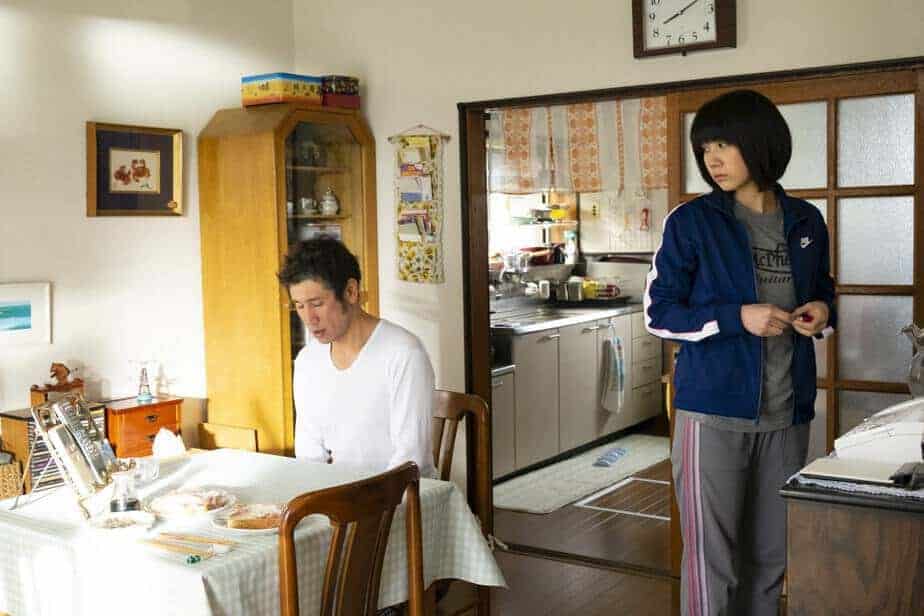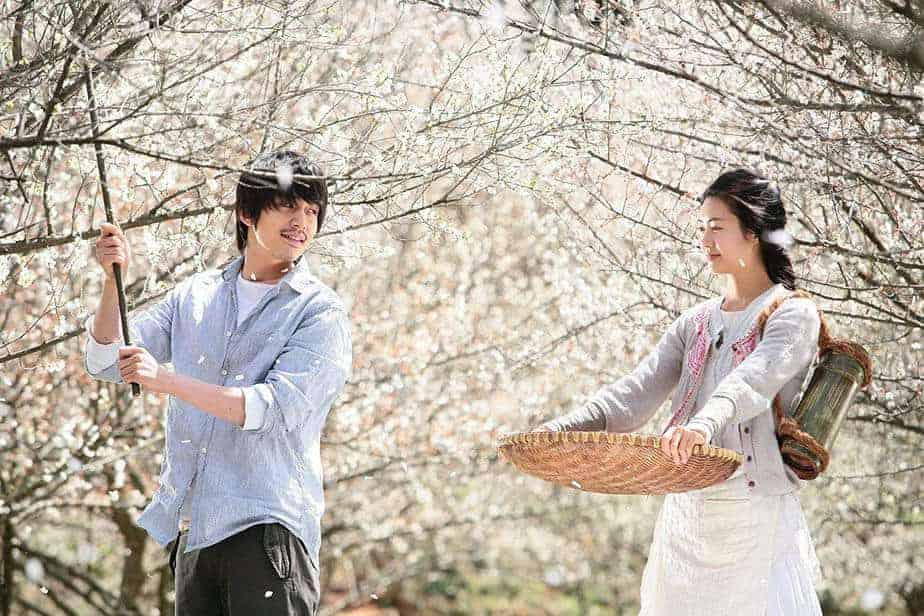Based on the manga series “Sukutte Goran” by Noriko Otani and featuring Matsuya Onoe, one of the most popular young Japanese Kabuki actors, and Kanako Momota of Japan’s top idol “Momoiro cloverZ”, “Love, Life and Goldfish” is a rare musical coming from Japan, which also bolsters rather impressive visuals.
“Love, Life and Goldfish” review is part of the Submit Your Film Initiative

Makoto Kashiba was once an elite bank clerk, working for a big bank in Tokyo. Due to an error however, he is demoted to a small branch in the country, a fact that has left him completely devastated. However, upon arriving in the area, he meets beautiful Yoshino Ikoma, who owns a parlor hosting a game where people try to catch as many goldfish as possible in a set amount of time, and falls in love with her. She, however, is in love with master pianist and goldfish catcher Noboru Oji, and soon a love triangle is shaped, while Makoto also starts to realize that there are more things in life than numbers and money. Asuka Yamazoe, the owner of a local bar also plays a significant role in the proceedings.
The first thing one will notice in the film is definitely its impressive visuals, which remind intently of Mika Ninagawa’s works. The goldfish parlor, the bar, the kimonos, and essentially every aspect of the movie are impressive to look, highlighting Kozo Shibasaki’s cinematography but also the coloring and the exceptional set design.
Being a musical, however, the most important factor in the film is the music, and I daresay, although not exactly fan of J-pop or folk, in general the work done in that department is quite good, particularly because Yukinori Makabe took care of switching the genres throughout, in a fashion that allows fans of most music categories to find something they like. Pop, rock, folk, even a kind of hip-hop are presented here, keeping the musical part intriguing, while, in combination with the excellent editing and the visuals, result in a number of scenes that could be described as audiovisual extravaganzas.
In terms of narrative, the story is somewhat cliched, both in the romantic aspect and the way the hard core urbanite learns to appreciate the virtues of country life, both of which we have seen countless times on cinema. The concept of fish-catching and the way it is implemented in the story in metaphoric fashion, and the role of Asuka, who emerges as an enigmatic persona who is not clear about her feelings and her overall role in the events, are the two elements that allow the narrative to avoid the overall cliched approach, although not fully.
Kanako Momota as the lingering Yoshino, Hayato Kakizawa as the apple of discord Noboru Oji, and Nicole Ishida as the mysterious Asuka give very fitting performances, benefiting the most by their obvious charisma and their convincing musical abilities. The one who steals the show, however, is Matsuya Onoe, who gives an impressively nuanced performance, while managing to present a number of different aspects of his character with equal artistry, including the musical part and the occasional theatricality his role demands.
“Love, Life and Goldfish” is a light movie, which demands from its viewer at least partial liking of modern Japanese music, and musicals for that matter. However, the visual prowess and Onoe’s performance are on a level that is good enough for anyone, and the two aspects that elevate the movie to at least being entertaining.
















